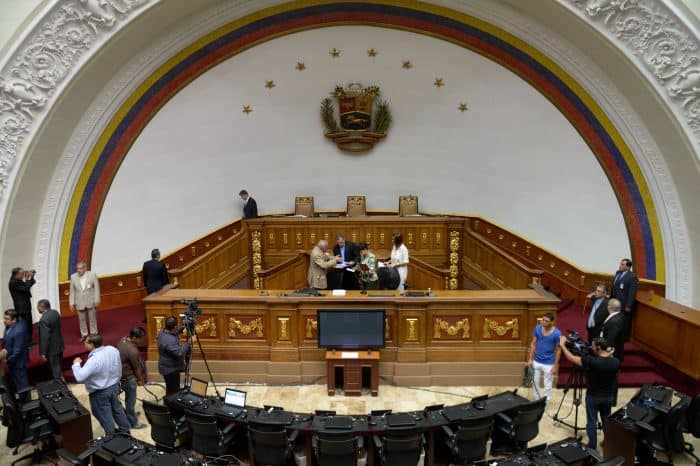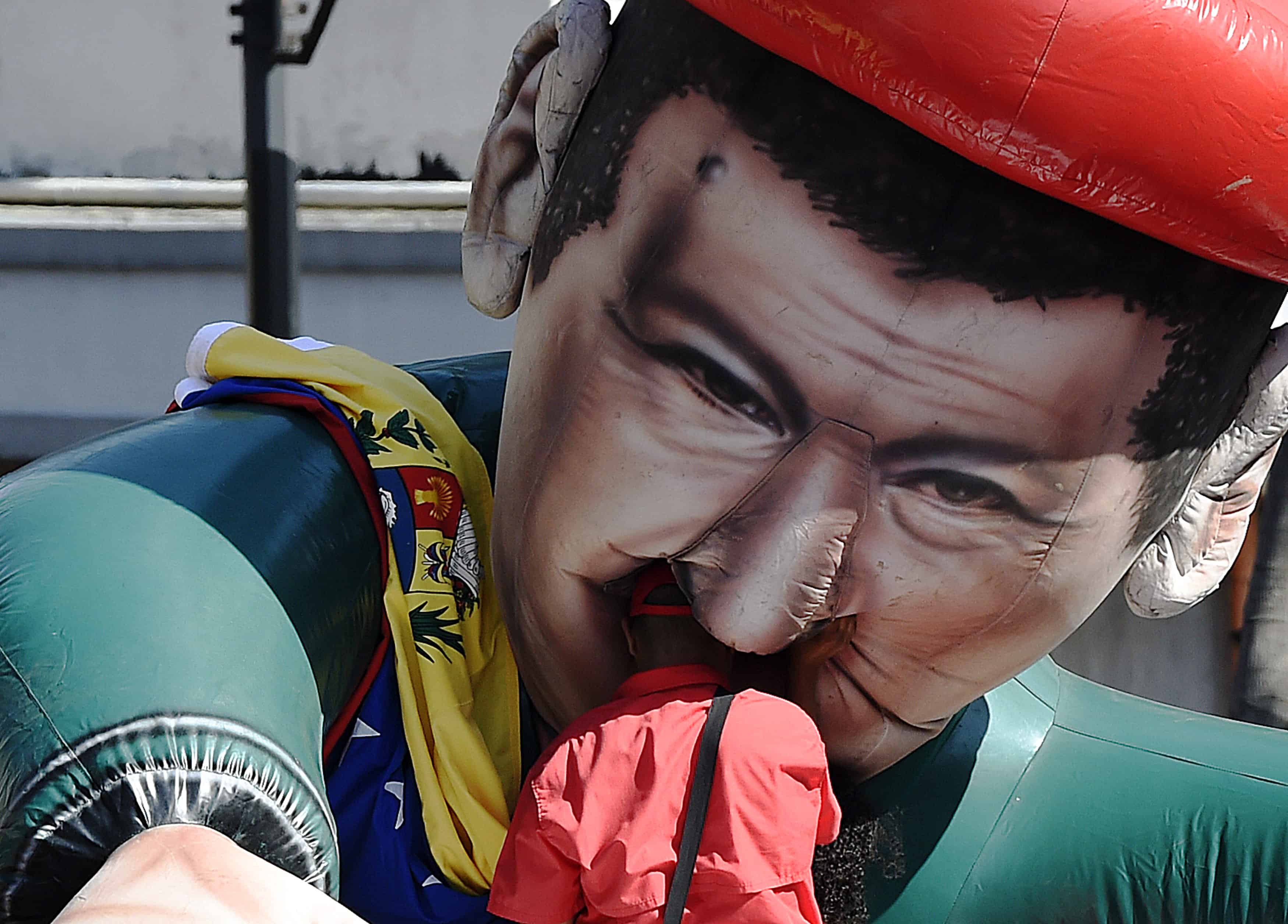CARACAS — Venezuela sank deeper into a messy political crisis Tuesday as the opposition-controlled National Assembly suspended its session after the Supreme Court declared it null and void.
Speaking before a nearly empty chamber, speaker Henry Ramos Allup, a fierce opponent of President Nicolás Maduro, declared the National Assembly lacked a quorum and would reconvene Wednesday morning.
The temporary legislative vacuum further complicates the tumultuous political scenario in reeling oil giant Venezuela.
The opposition won a landslide election victory last month but is fighting what it calls a biased Supreme Court to cling to its powerful two-thirds majority.
The court invalidated the current legislature Monday on grounds that Ramos Allup ignored its judges’ ruling by swearing in three opposition lawmakers from Amazonas state, where an investigation is underway into alleged vote-buying.
At stake in the power struggle between the legislature and judiciary is the opposition’s “super-majority,” which it has vowed to use to force Maduro from office within six months.
The two-thirds majority also gives it the power to remove judges from the Supreme Court, which the opposition accuses Maduro of packing with his allies.
The opposition had initially vowed to press ahead with the legislative session Tuesday in defiance of the Supreme Court’s latest ruling. But no lawmakers from Maduro’s United Socialist Party of Venezuela (PSUV) were in the legislature, and just a handful of deputies from the opposition Democratic Unity Roundtable (MUD) were there.
Legislative sources said the opposition was consulting its lawyers to decide how to respond to the Supreme Court.
In what could be a sign of a more conciliatory approach by the Maduro administration, Ramos Allup said he had spoken twice on the phone with Vice President Aristóbulo Istúriz.
“I think the vice president will be a facilitator in communications between the government and the opposition, between the branches of government, and above all between the executive and the legislature. We’re hoping that line of communication will remain open,” he said.
But Maduro’s number two official, former speaker Diosdado Cabello, struck a more confrontational tone, proposing the Supreme Court could take over legislative powers amid the standoff.
“We’re going to go to the Supreme Court of Justice … to request clarification and see what happens with a legislative void, because the president isn’t going to violate the constitution,” Cabello told journalists.
Under Venezuela’s constitution, Maduro must present his annual report to the National Assembly by Friday — which he may not be able to do if the legislature is not in session.

Political prisoners bill
Venezuela, the country with the world’s largest oil reserves, has sunk ever deeper into economic crisis as crude prices have plunged in recent months. A deep recession and what analysts say is the world’s highest inflation rate have fueled discontent with Maduro, whose term runs until 2019.
The opposition’s landmark win in the Dec. 6 legislative elections has triggered a crisis for Maduro and the “revolution” launched by his late mentor Hugo Chávez in 1999.
The Supreme Court has emerged as a powerful player as Venezuela embarks on a new era of divided government. A week before the 167-member legislature’s inauguration, the court barred the three opposition lawmakers from taking their seats, effectively scrapping MUD’s two-thirds majority. Ramos Allup, the new speaker, swore them in anyway, setting up a messy political and legal battle.
Just hours before the court’s latest ruling, MUD lawmakers had launched a legislative committee to probe alleged irregularities in the appointment of 13 judges to the 32-member Supreme Court.
The PSUV used an extraordinary session in the final hours of its legislative majority to push through the judges’ appointment, a move the opposition condemned as undemocratic.
The suspension of the legislature comes after MUD lawmakers introduced a bill Monday on one of their top initiatives, an amnesty for 75 jailed opposition figures they say are political prisoners.
The bill was tabled by Lilian Tintori, the wife of jailed opposition leader Leopoldo López.
He was sentenced to 14 years in September on charges of inciting violence at anti-government protests — a ruling that drew international condemnation.






